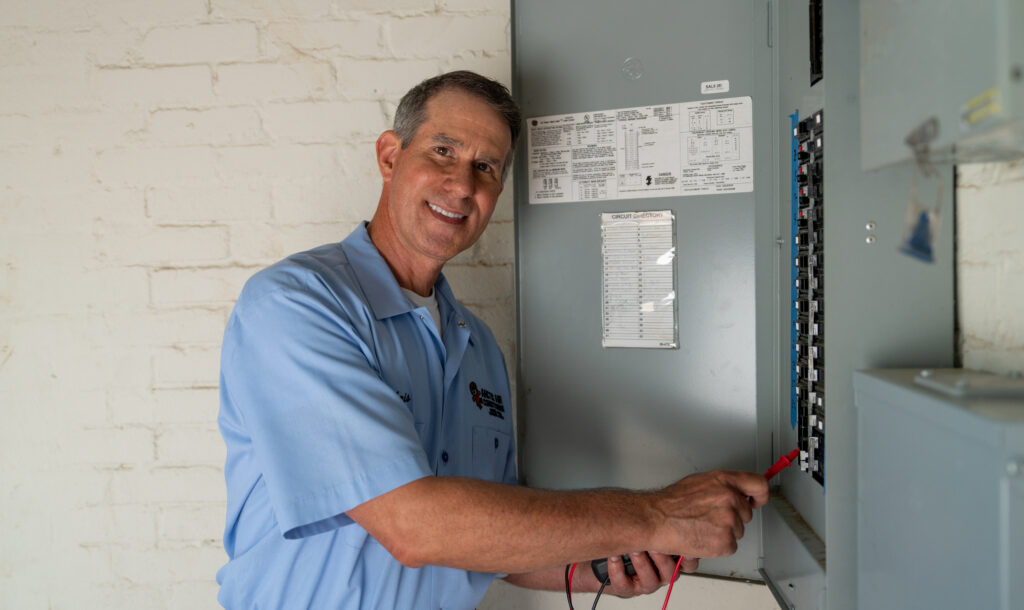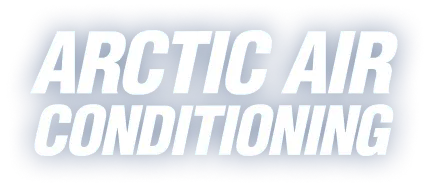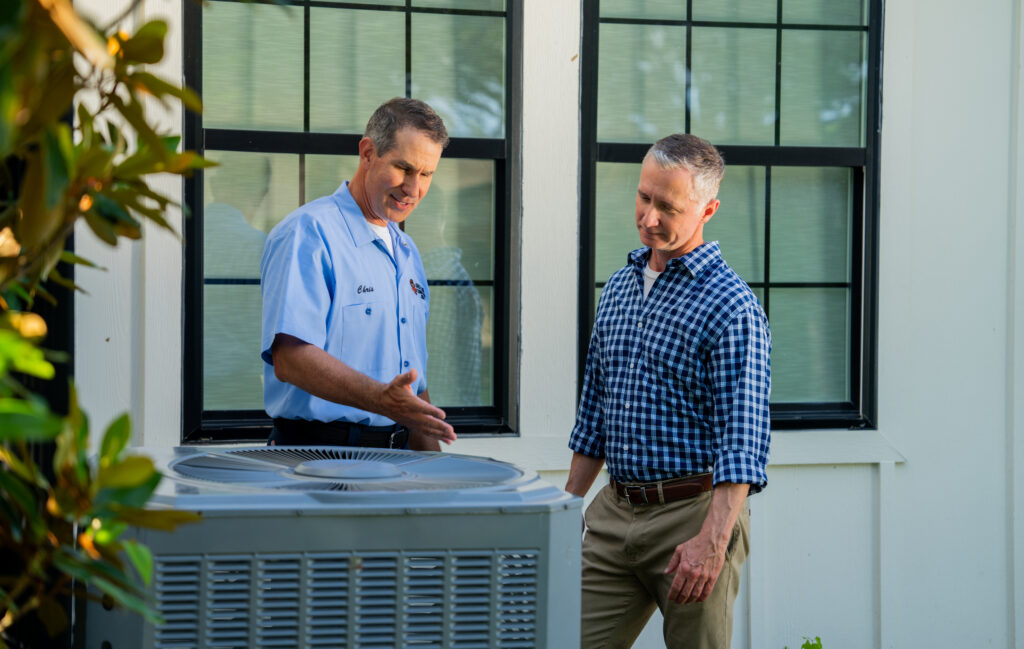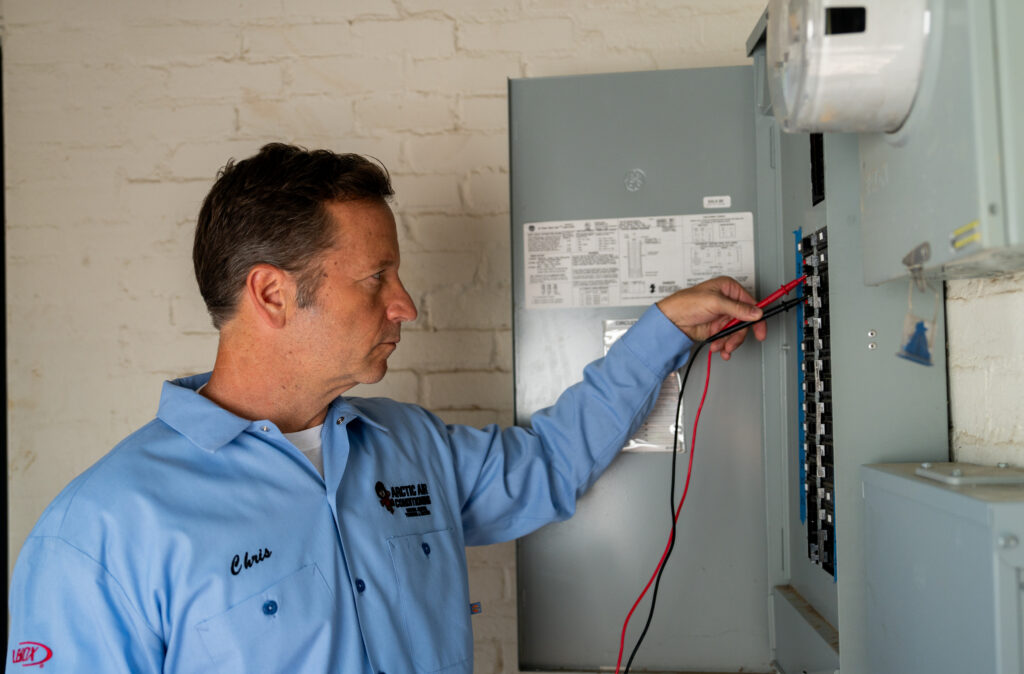
Blog
Ultimate Guide to Efficient HVAC Systems in New Jersey

Are you in the market for a new heating, ventilation, and air conditioning (HVAC) system? Several factors may drive your decision, including purchase cost, brand, size, and fuel source.
Perhaps, the most important consideration of all is the system’s energy efficiency rating. With this ultimate guide to efficient HVAC systems, you’ll have everything you need to make a wise purchasing decision for your New Jersey home.
Why Is Energy Efficiency So Important?
Of all the other factors that go into buying new HVAC equipment, here’s why energy efficiency should be your top priority:
- Lower utility bills: A typical U.S. household spends $2,000 a year on energy bills. By purchasing energy-efficient products, you can lower these costs by as much as 30%. As a result, any increased upfront investment pays you back over the lifetime of the equipment.
- Environmental preservation: While the chance to save money is a motivating factor, many homeowners also want to do their part for the environment. Filling a house with energy-efficient HVAC equipment and appliances prevents an average of 5,500 pounds of greenhouses gas emissions per year, or the equivalent of driving 6,000 miles in a passenger vehicle.
- Increased property value: Energy-efficient homes frequently sell for more than standard homes with comparable features because buyers love the idea of moving into a home with lower utility bills and fewer emissions.
How Is Heating and Cooling Efficiency Measured?
As you compare different HVAC systems, you will notice various acronyms used to convey energy efficiency. Understanding each one helps you be a more educated consumer.
- SEER: Seasonal energy efficiency ratio is the standard measure of air conditioning efficiency. As such, you’ll find this rating on air conditioners and air-source heat pumps. SEER is calculated by dividing the cooling output throughout the entire season (in British thermal units, or Btu) by the electricity consumed in the process (in watt-hours). The higher the SEER, the better the efficiency.
- EER: Energy efficiency ratio is similar to SEER. You’ll find it on air conditioners, air-source heat pumps, and geothermal heat pump systems. This rating tells you the cooling system’s ability to remove heat during peak use. A higher EER rating tells you that the equipment will keep up on the hottest summer days without costing a fortune to operate.
- HSPF: Heating seasonal performance factor is the rating given to heat pumps when running in heating mode. The measurement is calculated similarly to a SEER rating—heat output (in Btu) is divided by the electricity used (in watt-hours). As with SEER and EER, a higher rating indicates more efficient performance.
- AFUE: Annual fuel utilization efficiency is the thermal performance rating given to furnaces and boilers. Unlike the ratings listed above, AFUE is expressed as a percentage. It’s calculated by dividing the amount of fuel supplied to the heater (in hundred cubic feet, or CCF) by the usable heat generated for your house (in Btu). The closer to 100% a furnace or boiler can get, the better.
- COP: Coefficient of performance indicates the heating efficiency of a geothermal heat pump. It’s a ratio of the electricity consumed (in watt-hours) to the heat produced (in Btu). As with the other ratings here, higher numbers mean better performance.
What Does the Energy Star Most Efficient Label Mean?
More than 90% of Americans recognize the blue Energy Star logo. As a government-backed symbol of energy efficiency, Energy Star makes it easy to pick out the most high-performance products available.
In recent years, Energy Star began going one step further, recognizing the best of the best with its Most Efficient label. HVAC equipment that earns this distinction represents the leading edge in energy efficiency. A new list is released every year so homeowners can stay on top of which products are performing the best.
Energy Star Most Efficient 2020 – Air Conditioners & Air-Source Heat Pumps
Most people are familiar with central air conditioners. They deliver cooled air through a network of air ducts to keep the entire house comfortable in the summer. Air-source heat pumps are similar, working as air conditioners in the summer and operating in reverse to heat your home in the winter.
A lesser-known option is called a ductless mini-split. This equipment provides year-round heating and cooling, just like a heat pump, but it doesn’t rely on ductwork.
Instead, the indoor wall-mounted unit features a built-in air handler. With the ability to connect up to five air handlers to a single outdoor unit, ductless mini-splits can heat and cool an entire home without ductwork.
Here’s a look at some of the ratings you can expect from Energy Star Most Efficient air conditioners, air-source heat pumps, and ductless mini-splits:
Air Conditioners
- Capacity: 22,800 to 58,500 Btu (1.9 to 4.9 tons)
- SEER: 18 to 23
- EER: 12.5 to 14.0
Air-Source Heat Pumps
- Capacity: 22,800 to 58,500 Btu (1.9 to 4.9 tons)
- SEER: 18 to 23
- EER: 12.5 to 14.15
- HSPF: 9.5 to 11.7
Ductless Mini-Splits
- Capacity: 9,000 to 35,200 Btu (0.8 to 2.9 tons)
- SEER: 20.0 to 33.1
- EER: 13.0 to 18.0
- HSPF: 10.3 to 14.2
Energy Star Most Efficient 2020 – Geothermal Heat Pumps
These special heat pumps belong in their own category because they boast the title of being the most efficient home heating and cooling option in the world. Also called ground-source heat pumps, geothermal systems work by tapping into the thermal energy stored in the earth, which stays about the same temperature all year round. This makes the heat exchange process incredibly efficient.
Geothermal heat pumps are available in two configurations: closed-loop and open-loop. The biggest drawback of ground-source heating and cooling is that you need ample land space or a body of water on your property to install the necessary underground loops. The installation also costs two to four times more than traditional HVAC unit equipment.
Here are the impressive ratings you can expect from Energy Star Most Efficient geothermal heat pumps:
- Capacity: 24,000 to 78,700 Btu (2 to 6.6 tons)
- EER: 17.5 to 42.5
- COP: 3.5 to 5.7
Energy Star Most Efficient 2020 – Gas Furnaces
More than half of all homes in the United States have a gas furnace. Rather than using electricity to move thermal energy the way heat pumps do, they generate hot combustion gases inside one or more heat exchangers.
The warmth is then introduced into your home when air blows over the heat exchanger. Variable-capacity valves, secondary heat exchangers, and variable-speed blowers are examples of technology that makes modern furnaces more efficient than old ones.
Here are the types of ratings you can expect from Energy Star Most Efficient gas furnaces:
- Capacity: 39 to 132 million British thermal units per hour (MBtu/h)
- AFUE: 97.0 to 98.7
Energy Star Most Efficient 2020 – Gas Boilers
Boilers aren’t as common in the U.S. as they once were, but they can provide comfortable, efficient heating. Boilers work by heating water, which is distributed around the house via radiators or radiant floor piping.
Combination boilers generate enough hot water to both heat your home and provide domestic hot water.
Here are the ratings to expect from Energy Star Most Efficient gas boilers:
- Capacity: 50,000 to 299,000 Btu/h
- AFUE: 95 to 97
Save Energy with the Right HVAC Contractor in New Jersey
Before you purchase your next HVAC equipment upgrade, speak with the heating and cooling experts at Arctic Air Conditioning. We can help you perform a lifetime cost calculation to determine the return on investment for various home comfort systems.
No matter what you choose, we’ll ensure proper sizing and installation to maximize the comfort, efficiency, and longevity of your purchase.
To learn more about installing Energy Star products in your New Jersey home, or to schedule an estimate, please contact the local HVAC service technicians at Arctic Air today at (732) 518-8215.





